Best Metal Detectors For Coins UK 2025 | Expert Guide

Written by Piotr Lesniewski
Detectorist • Scotland
As an Amazon Associate we earn commission from qualifying purchases. Read our full Affiliate Disclosure.
As a passionate metal detectorist based in the UK, I've dedicated countless hours to the pursuit of lost coins. There's a unique thrill in unearthing a piece of history, whether it's a Roman denarius or a hammered silver penny.
To be successful, you need a metal detector that's not just a tool, but an extension of your senses. The challenge for many, especially those new to the hobby, is deciphering the technical specifications and understanding how they translate to performance in our often mineralised and iron-laden soils.
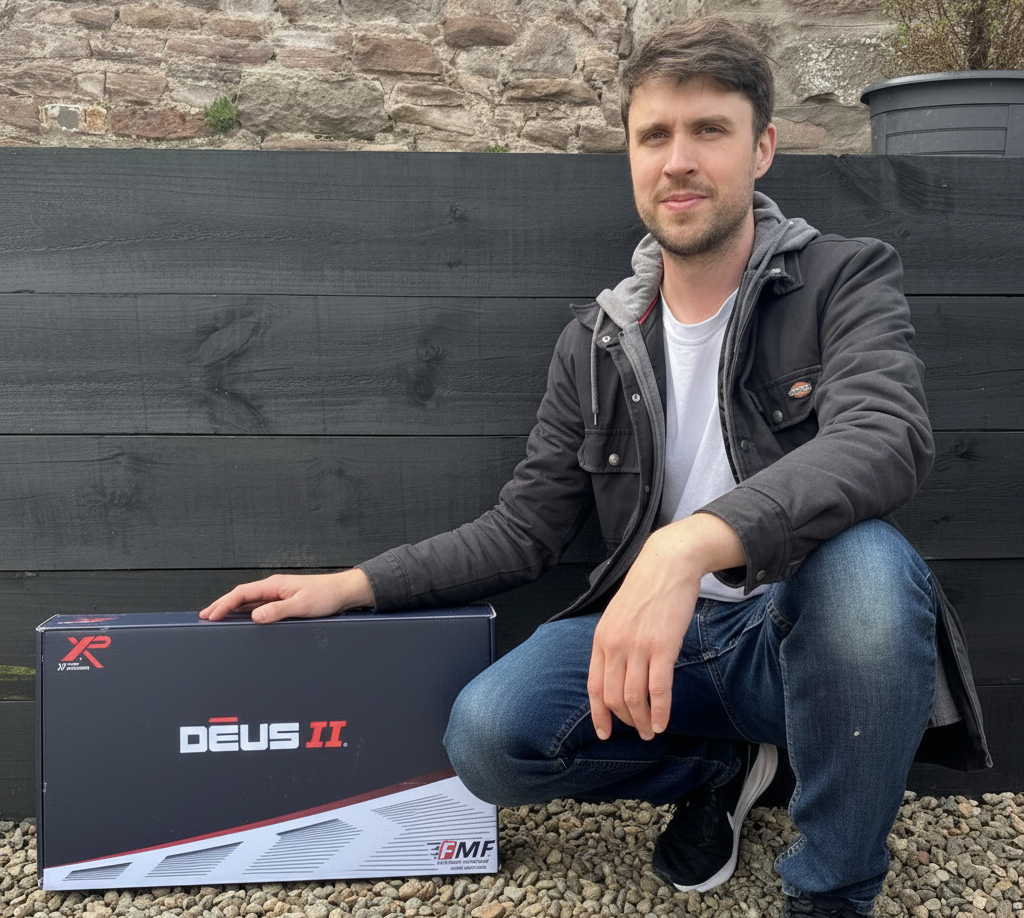
After extensive field testing, I've put together this guide to help you find the perfect coin-hunting companion and the Best Metal Detector For Coins for your adventures.
Best Metal Detectors For Coins in 2025
Minelab Equinox 900
Best Overall Metal Detector For Coins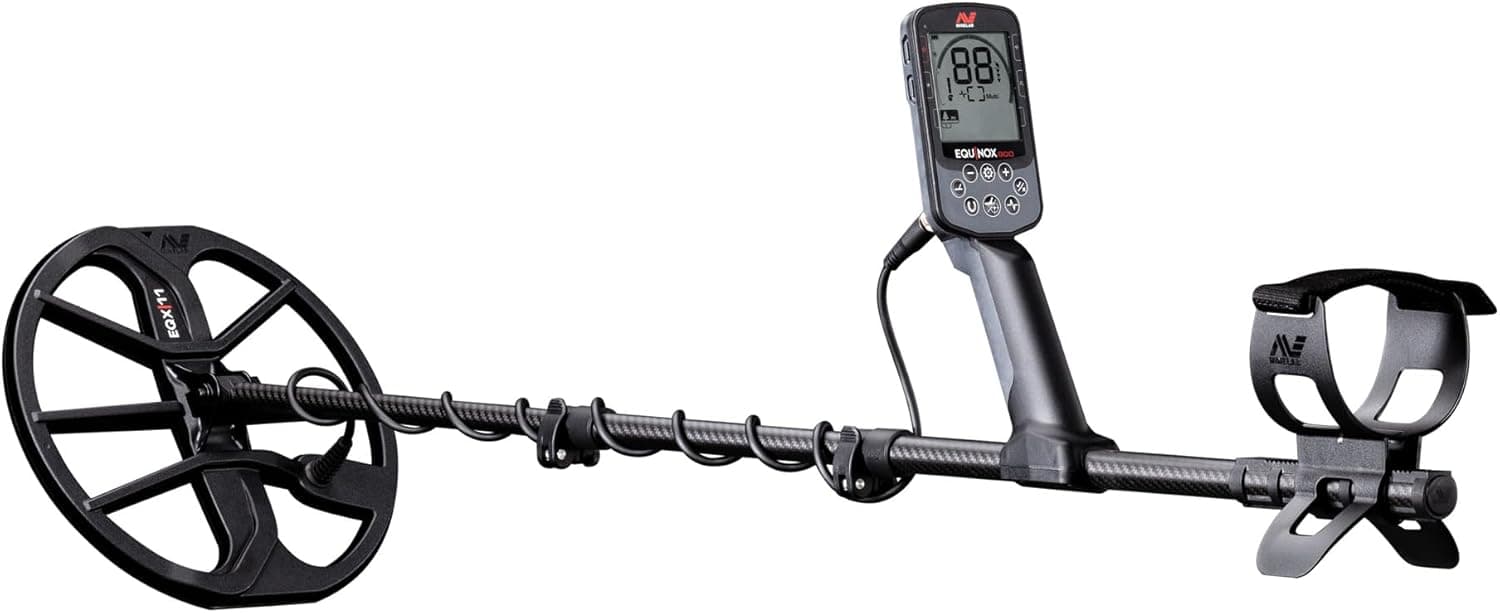
As an Amazon Associate we earn from qualifying purchases.
I Recommend This If...
- You are an ambitious beginner or experienced detectorist who wants a top-tier metal detector that excels in all UK conditions without a punishing learning curve.
- You frequently hunt on sites with high iron contamination (like Roman or medieval areas) and need excellent target separation to find good targets amongst junk.
- You want a versatile, all-in-one metal detector that performs just as well on wet sand and in shallow water as it does in a pasture.
- You value a lightweight, robust design that allows for long, comfortable detecting sessions.
Best Overall Metal Detector For Coins: Minelab Equinox 900
When I take the Minelab Equinox 900 out, it’s the feeling of confidence that I love the most. Its Multi-IQ technology isn't just a feature on a box; it means I can walk onto a field littered with Roman iron and not feel overwhelmed.
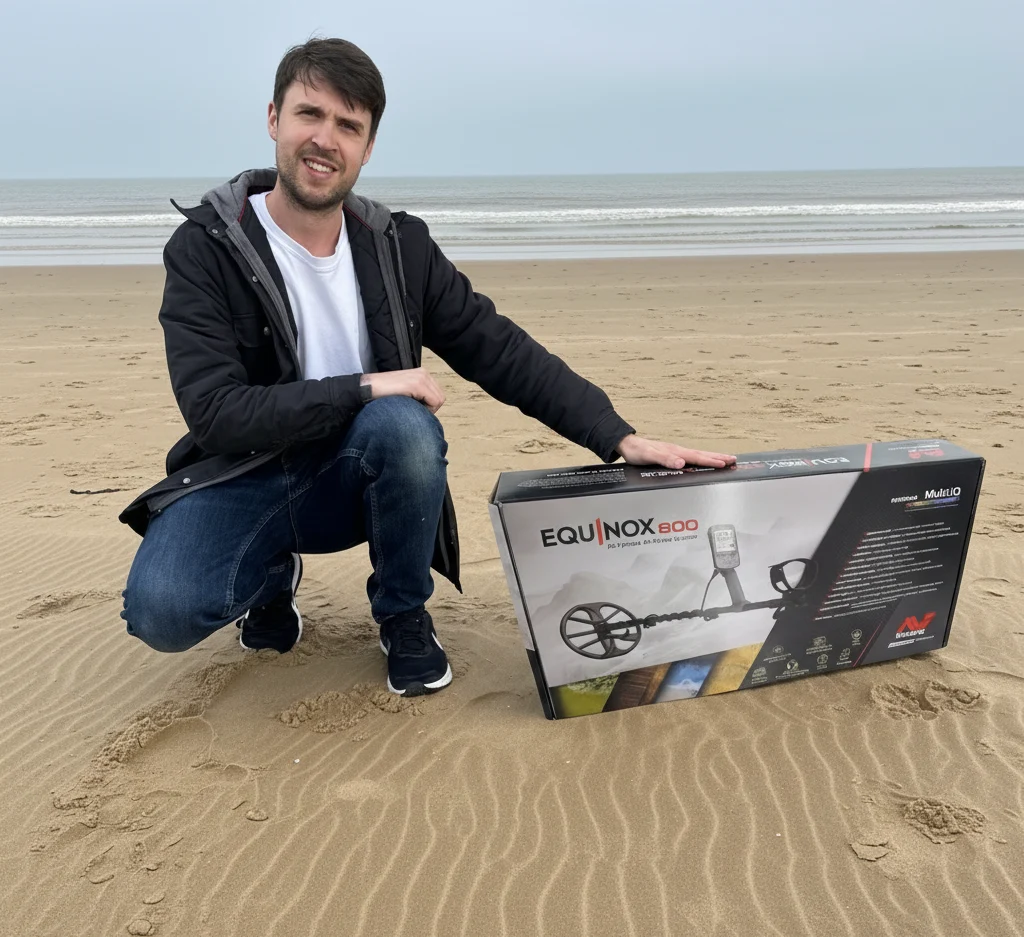
I can hear the crisp, high tone of a small coin right next to the low grunt of a nail, something that cheaper metal detectors would just blur into one confusing signal.
I remember pulling a tiny silver hammered cut halfpenny from a patch of ground that others had given up on. The Equinox's fast recovery speed is what made that possible; it could distinguish the good target from the junk surrounding it.
The metal detector has held up brilliantly over the years. The carbon fibre shaft makes it feel both light and robust, and I can swing it all day without my arm feeling it the next morning. The battery life has never let me down on a long day's dig either.
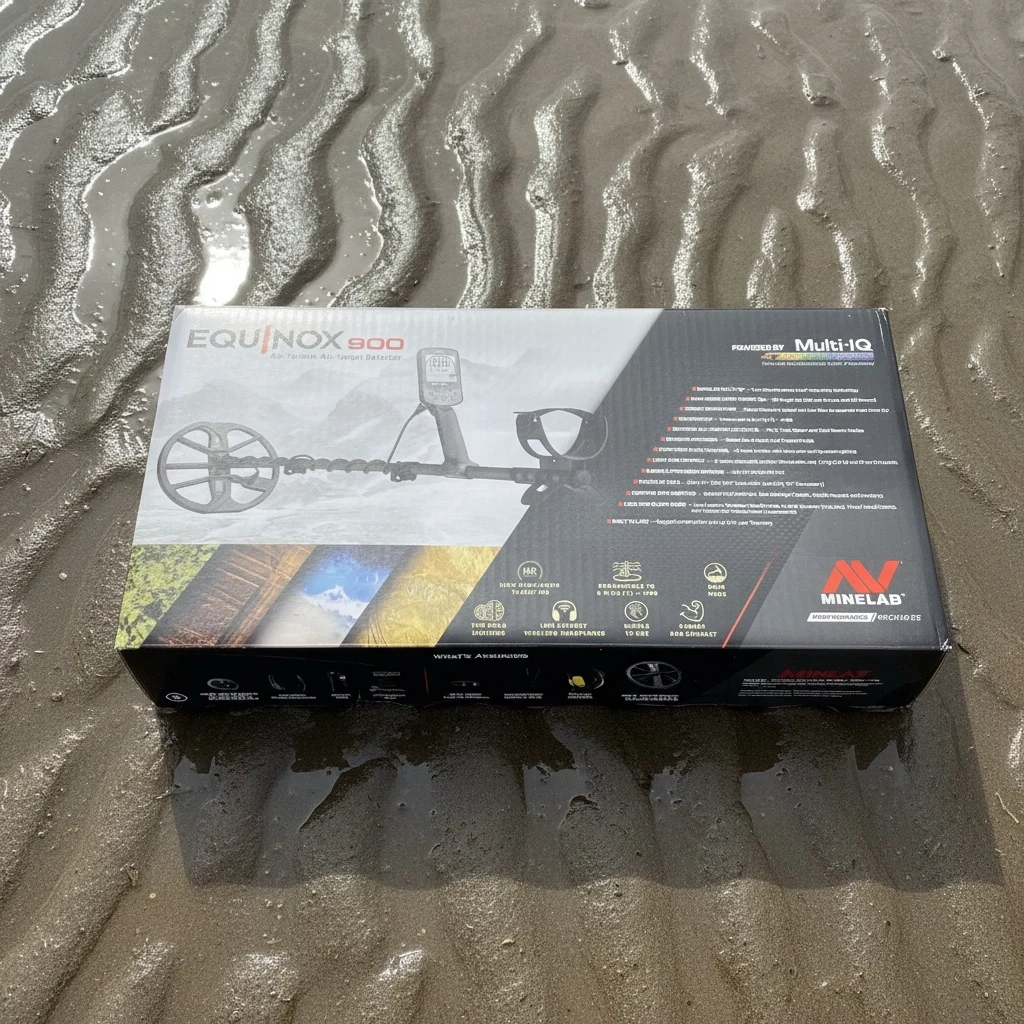
What I don't love is that for a complete beginner, the sheer number of settings can be a bit daunting. However, you can start with the excellent preset modes and grow into the metal detector. It’s a metal detector that rewards you for learning its language.
For a UK coin hunter who wants a metal detector that can do it all, from pasture to beach, and pull the good stuff out of iron-infested soil, the Equinox 900 is a sound investment. It gives you the confidence that if there's a coin to be found, you're going to hear it.
Nokta Makro Simplex+
Best Budget Metal Detector For Coins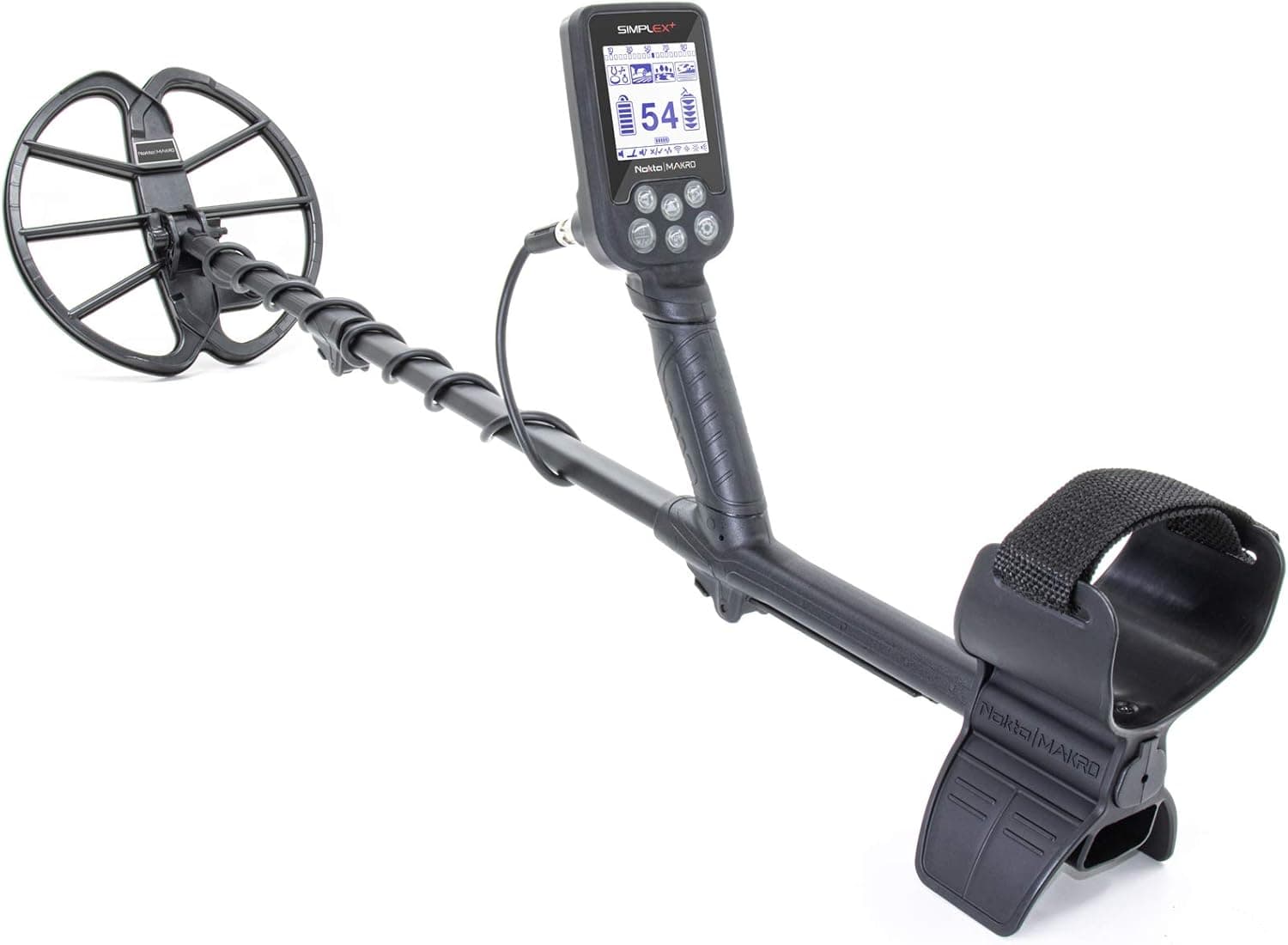
As an Amazon Associate we earn from qualifying purchases.
I Recommend This If...
- You are a beginner looking for the best possible performance and feature set without stretching your budget.
- You want the freedom to detect anywhere, including in rivers, streams, and on the beach, thanks to its fully waterproof design.
- You appreciate simplicity and a "turn-on-and-go" experience but still want a metal detector with room to grow as your skills develop.
- You need a durable, reliable "workhorse" metal detector that can handle the mud and rain of typical UK detecting.
Best Budget Metal Detector For Coins: Nokta Makro Simplex+
The Nokta Makro Simplex+ is a metal detector that consistently punches above its weight. I often recommend it to people who are just starting out because it offers features that are usually found on more expensive metal detectors.
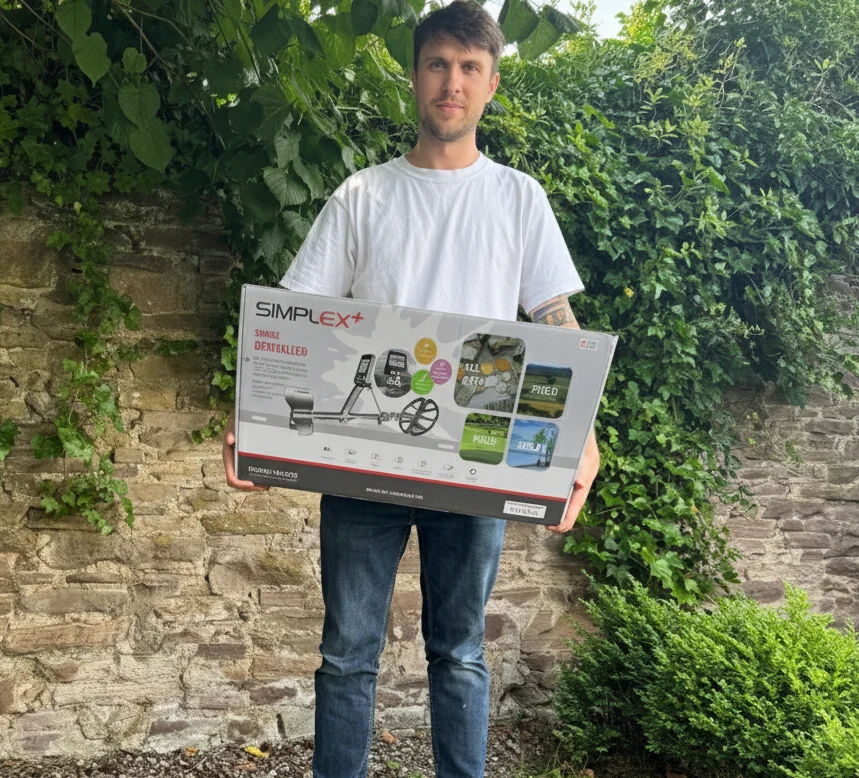
The first time I used the Simplex+, I was struck by its simplicity. It’s a turn-on-and-go metal detector, but it also has enough settings to allow you to grow as a detectorist. The pre-set modes are great for different locations, and I've found the 'Field' mode to be particularly effective for coin shooting in pastures and farmland.
The Simplex+ feels like a workhorse. I’m not afraid to get it muddy or caught in a downpour. I’ve had mine for a few years now, and despite a few knocks and scrapes, it’s never failed me.
What really sets the Simplex+ apart at this price point is that it's fully waterproof. I've taken it into shallow streams and along the shoreline without any issues, which opens up a lot of possibilities for finding lost coins.
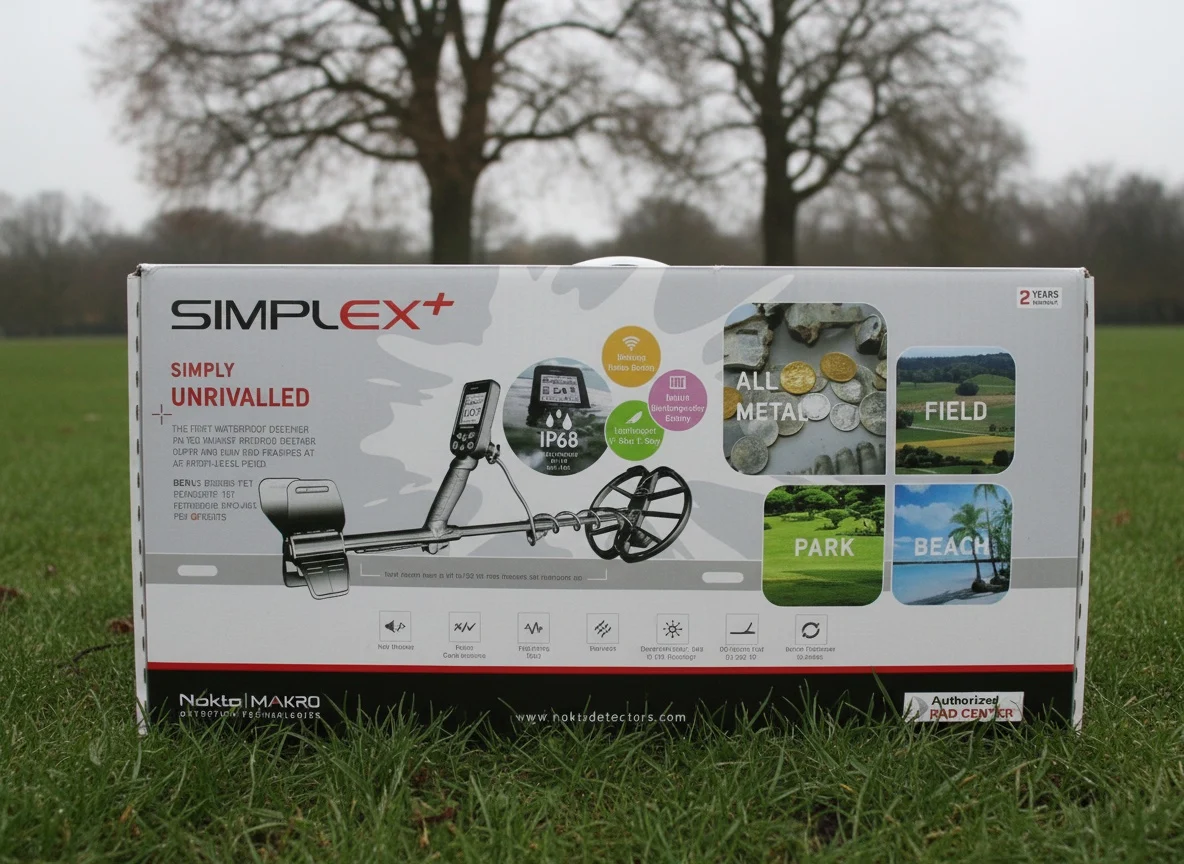
The wireless headphones are another fantastic feature, giving me the freedom to move without getting tangled in cables. The vibration mode is also a nice touch, especially when I'm detecting in a noisy environment.

To be fair, it can struggle a bit more in highly mineralised soil compared to the high-end metal detectors, but that's a reasonable trade-off for the price. For the money, the depth and sensitivity of the Simplex+ are truly impressive, and I've found plenty of old coins with it to prove its capabilities.
Garrett ACE Apex
Best Mid-Range Metal Detector For Coins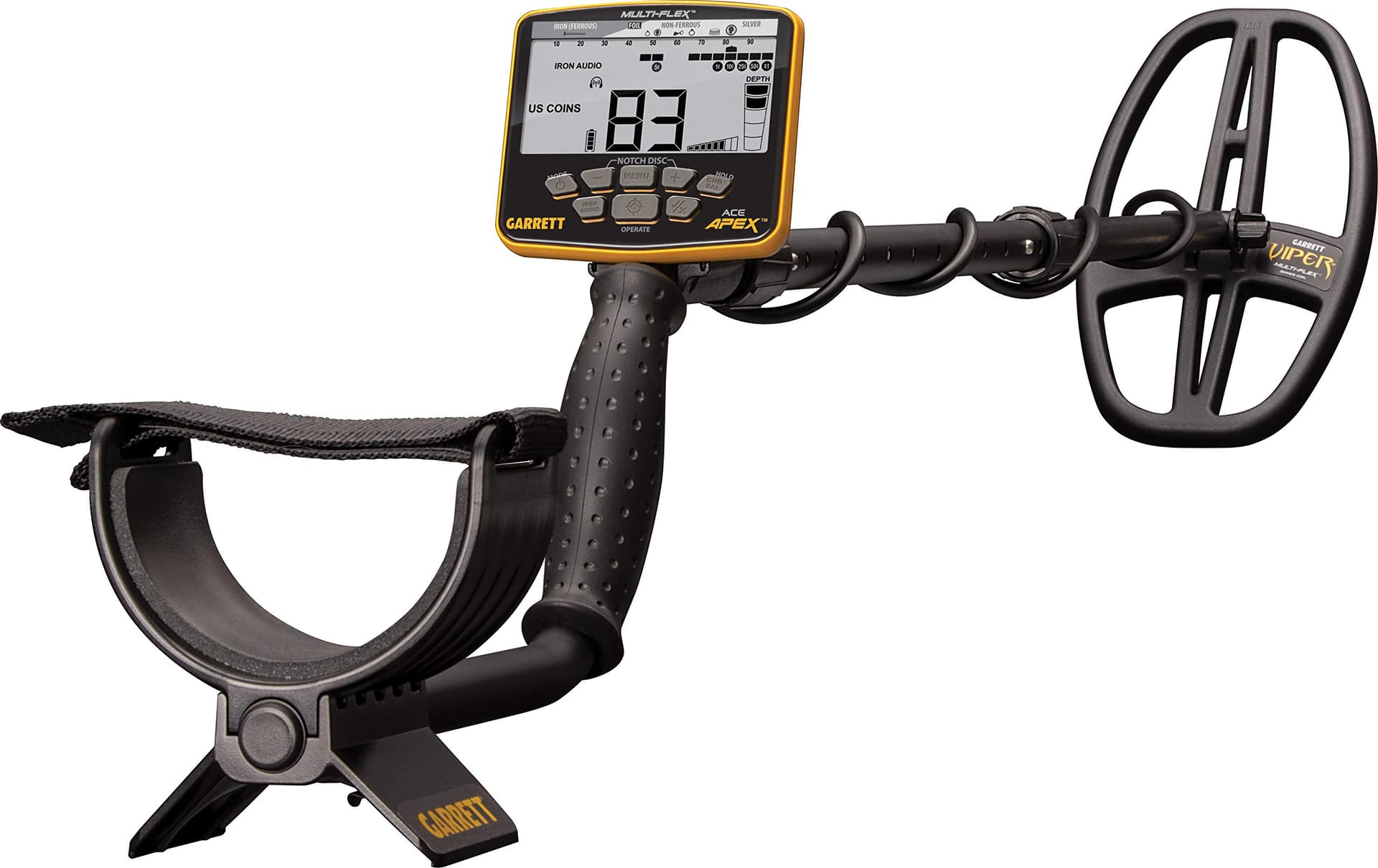
As an Amazon Associate we earn from qualifying purchases.
I Recommend This If...
- You are an intermediate detectorist ready to upgrade from an entry-level model to gain the power of multi-frequency technology.
- You want the flexibility to switch between different frequencies to best suit the specific site you are hunting.
- You enjoy having clear, intuitive controls and helpful audio features like Iron Audio to better identify targets in trashy areas.
- You're looking for a lightweight, comfortable metal detector that offers a taste of high-end performance at a mid-range price.
Best Mid-Range Metal Detector For Coins: Garrett ACE Apex
The Garrett ACE Apex is a fantastic mid-range option that I've had a lot of success with. It feels like the perfect step-up metal detector for someone who has outgrown their entry-level model.
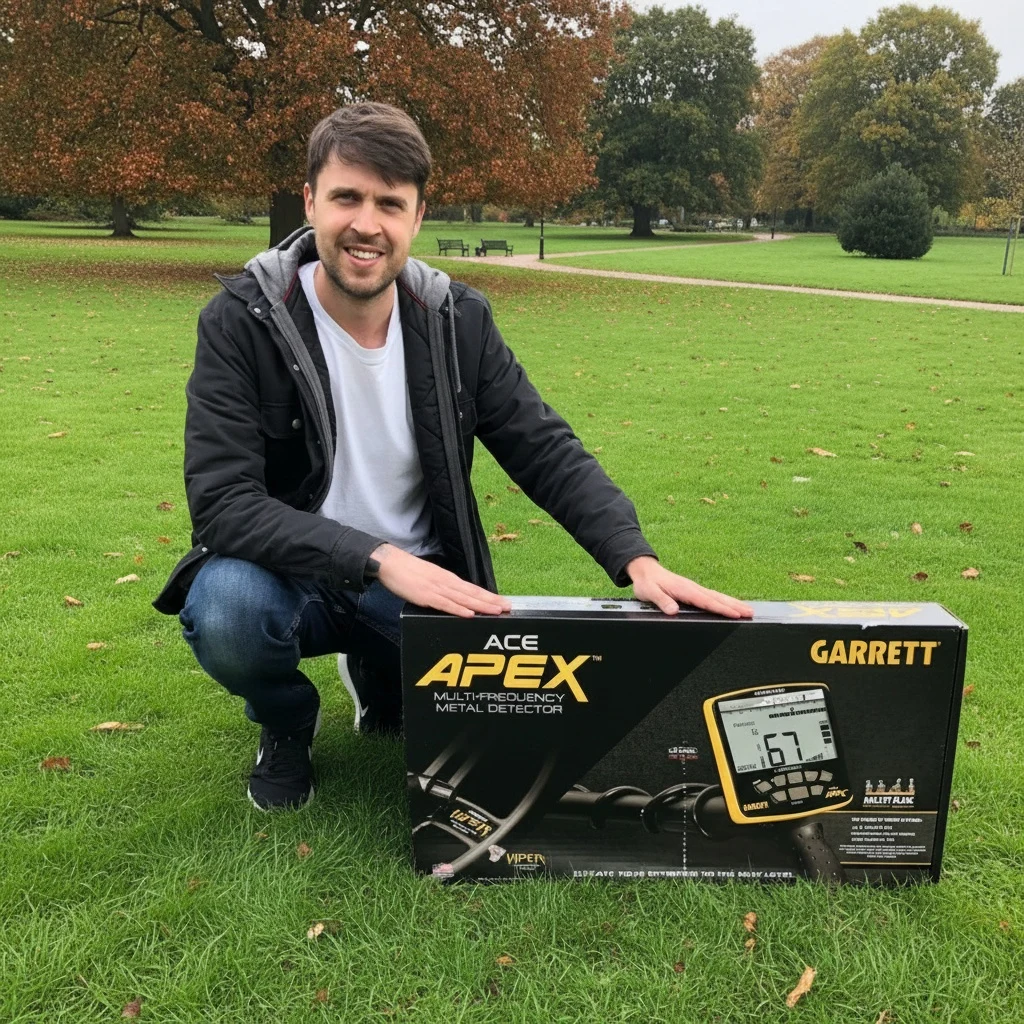
The Multi-Flex technology, similar to Minelab's Multi-IQ, allows me to choose between single or multi-frequency operation. I find this flexibility incredibly useful. When I'm on a site with a lot of iron, I can switch to a higher single frequency to better pick out small, non-ferrous targets like hammered silver coins. On cleaner ground, I'll use the multi-frequency mode for a more general search.
I remember one occasion where the Iron Audio feature helped me pull a lovely Roman bronze from right next to a piece of iron. I could hear the low tone of the iron, but also the faint, higher tone of the coin. A more basic metal detector would have likely missed it.
The Apex is also very lightweight and has a comfortable grip, which is important for long detecting sessions.
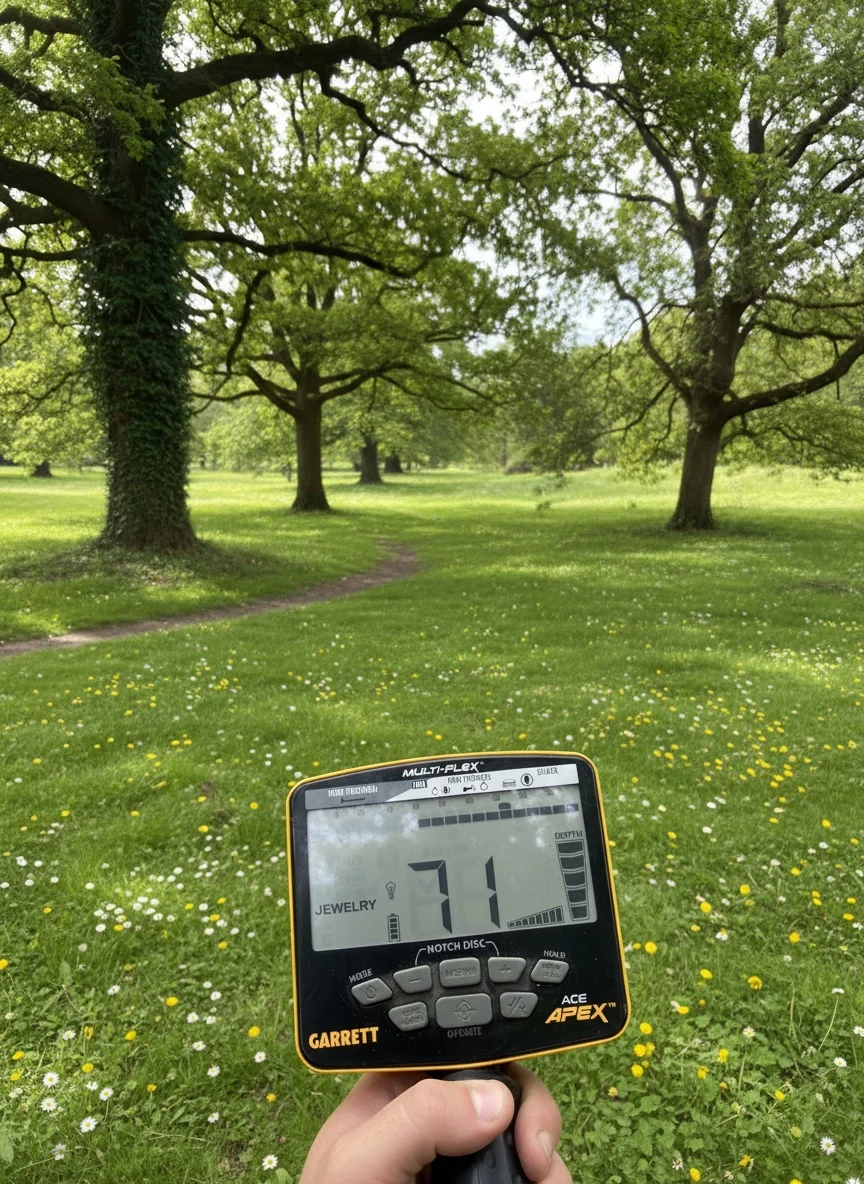
The large LCD screen is easy to read, and the button layout is intuitive. The Z-Lynk wireless technology is another great feature, providing a fast and reliable connection to my headphones with no noticeable lag.
The battery life is solid, and I can usually get a full day's detecting out of a single charge. If I had one small complaint, it would be that the arm cuff can feel a little flimsy compared to some other metal detectors, but it's never actually caused me any problems.
Overall, the Apex offers a taste of high-end performance without the high-end price tag, making it a great choice for the intermediate coin hunter.
XP Deus II
Best High-End Metal Detector For Coins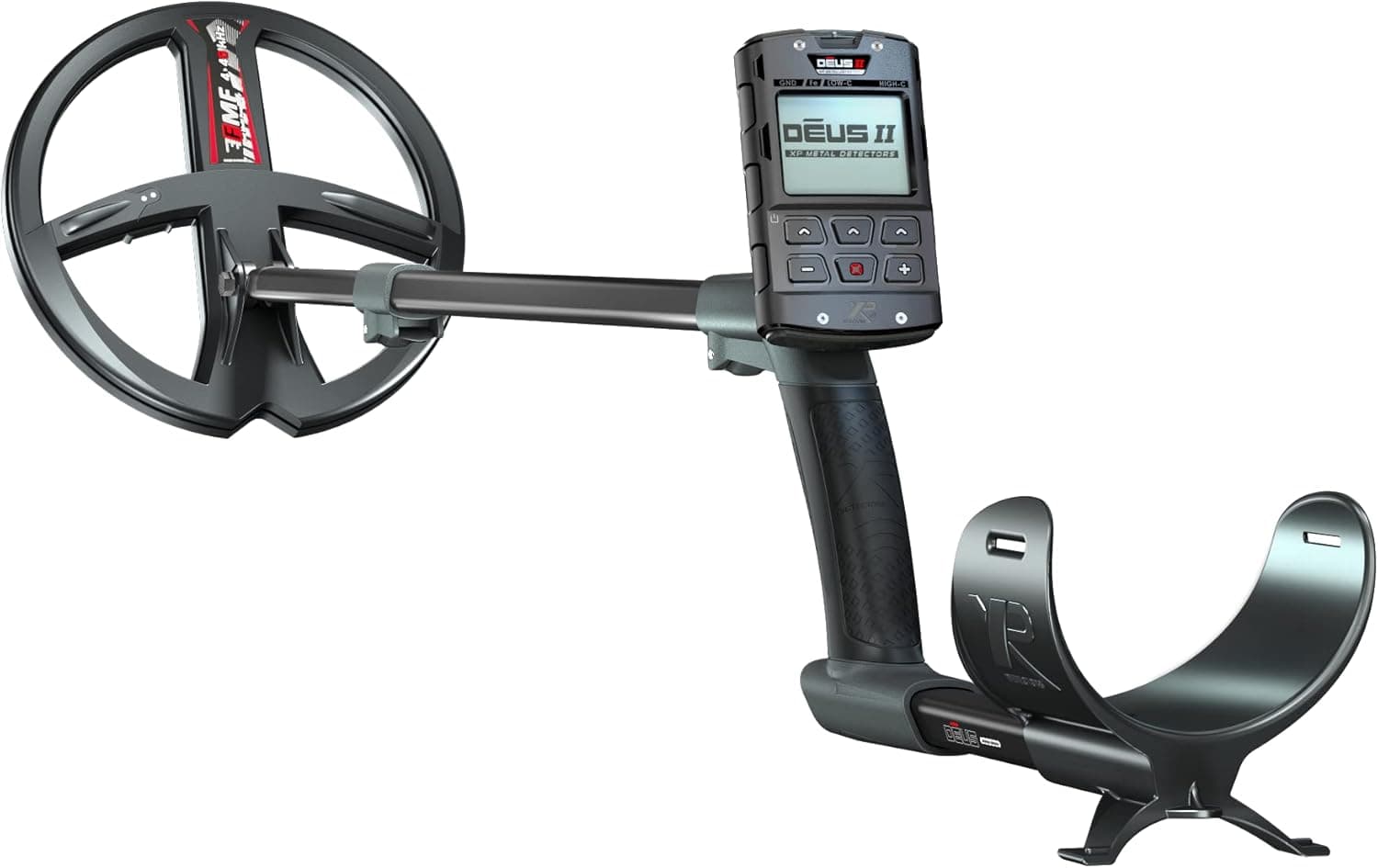
As an Amazon Associate we earn from qualifying purchases.
I Recommend This If...
- You are a serious, experienced coin hunter who demands the absolute best in terms of depth, speed, and accuracy.
- You want the ultimate freedom and comfort of a completely wireless and incredibly lightweight metal detector.
- You love to have complete control to fine-tune and customize your metal detector's settings for peak performance on any site.
- You are making a long-term investment in your hobby and want the most advanced and capable coin-finding metal detector on the market.
Best High-End Metal Detector For Coins: XP Deus II
The XP Deus II is, in my opinion, the pinnacle of metal detecting technology for coin hunting. The first time I used it, I was blown away by how light and responsive it felt.

It's a completely wireless metal detector, with the coil, remote, and headphones all communicating with each other seamlessly. This makes it incredibly light and easy to swing. No more getting my headphone cable snagged on a branch!
The Fast Multi-Frequency (FMF) technology is what really sets the Deus II apart. It's incredibly fast and accurate, and I've been able to find coins at depths that other metal detectors simply can't reach. It feels like it hoovers up good targets, allowing me to cover ground quickly and efficiently.
The Deus II is also highly customisable. I can create my own search programs, adjust the audio tones, and fine-tune the settings to suit my specific needs. This level of control is a dream for experienced detectorists.

The bone conduction headphones are another innovative feature. They allow me to hear the metal detector's signals clearly while still being aware of my surroundings. Of course, all this technology comes at a price.
It's not a metal detector for the casual hobbyist. But for the serious coin hunter who demands the best performance and is willing to put in the time to learn its intricacies, the Deus II is in a class of its own.
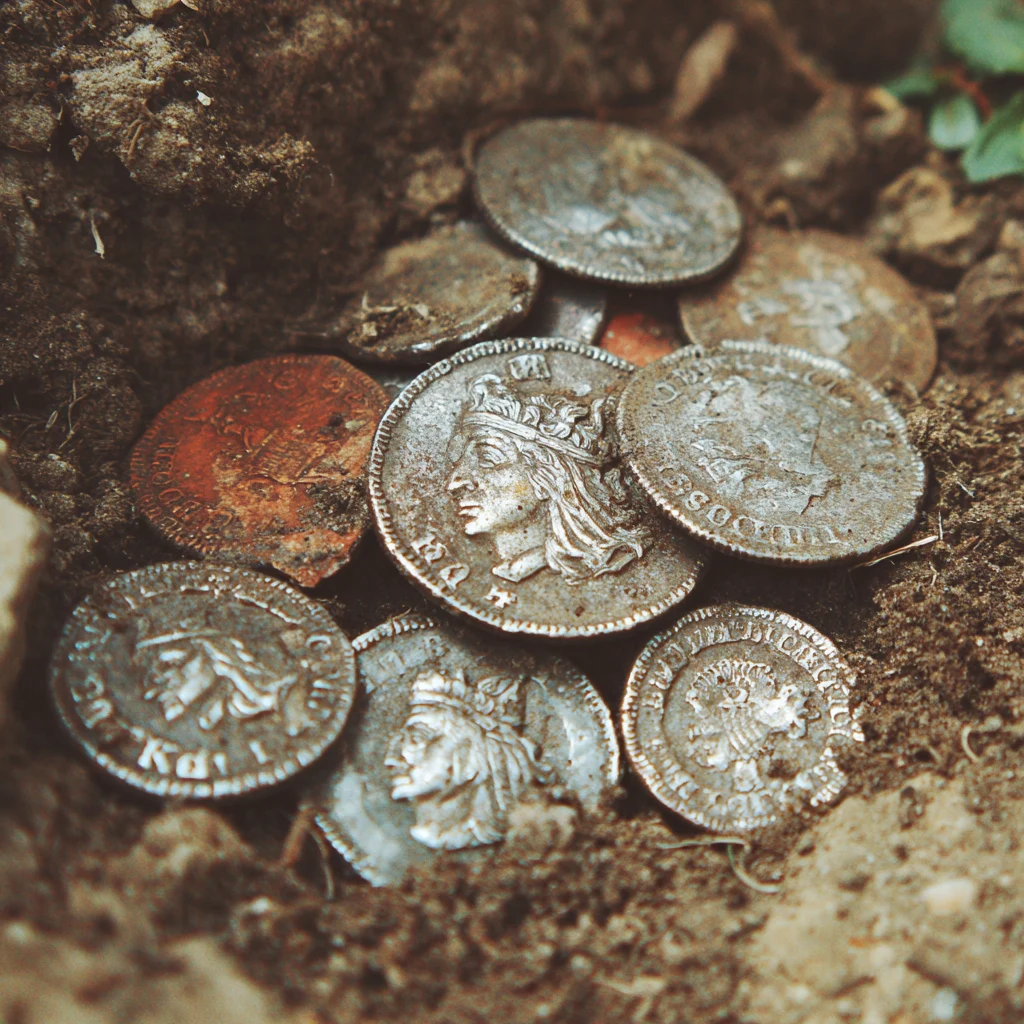
What to Look For When Picking a Coin Metal Detector
Frequency
The frequency of a metal detector is a crucial factor in its performance. Lower frequencies are better for detecting larger, more conductive targets like silver coins at greater depths. Higher frequencies are more sensitive to smaller, less conductive targets like hammered silver and gold coins. For coin shooting in the UK, a metal detector with either a mid-range frequency (around 10-15 kHz) or, even better, multi-frequency capabilities is ideal.
Ground Balance
Ground balance is a feature that allows the metal detector to ignore the effects of ground mineralisation. Most modern metal detectors have automatic ground balance, which is great for beginners. More advanced metal detectors also offer manual ground balance, which allows you to fine-tune the settings for optimal performance in challenging conditions.
Discrimination and Notch
Discrimination allows you to ignore unwanted targets, such as iron nails and foil, while still detecting valuable items like coins. A good discrimination system is essential for coin shooting, as it will save you from digging a lot of junk. Notch discrimination is a more advanced feature that allows you to selectively ignore specific types of targets while still detecting others. This can be useful for filtering out common trash items like ring pulls.
Target ID
Target ID is a feature that gives you a visual or audible indication of the type of metal you have detected. Most metal detectors use a numerical scale, with different numbers corresponding to different types of metal. A reliable target ID system can be a great help in deciding whether or not to dig a target. However, it's important to remember that target ID is not always 100% accurate, and it's always a good idea to dig promising signals, even if the target ID is not what you expect.
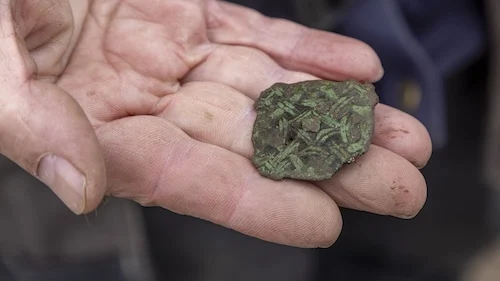
Budget Considerations When Metal Detecting for Coins
You don't need to spend a fortune to get a good coin-shooting metal detector. There are some excellent entry-level metal detectors that are more than capable of finding old coins.
As you move up in price, you'll generally get more features, such as multi-frequency technology, wireless audio, and more advanced settings. While these features can certainly improve your success rate, the most important thing is to learn how to use your metal detector properly.
A skilled detectorist with a budget metal detector will often find more than a beginner with a top-of-the-line model.

My Top Tips for Coin Shooting
Research Your Permissions
The key to finding old coins is to detect in the right places. Do your research and try to get permission to detect on land that has a long history of human activity. Old footpaths, Roman roads, and medieval settlements are all great places to start.
Learn Your Metal Detector
Take the time to learn your metal detector's settings and sounds. Practice in your garden with different types of coins to get a feel for how your metal detector responds to them. The more you understand your metal detector, the more successful you will be.
Dig Everything (at first)
When you're starting out, it's a good idea to dig every signal. This will help you learn to distinguish between the sounds of good targets and junk. As you gain experience, you'll be able to be more selective about what you dig.
Use a Pinpointer
A pinpointer is a small, handheld metal detector that helps you locate your target in the hole. It's an essential piece of kit that will save you a lot of time and frustration.
Quick Summary
| Rank | Detector | Amazon Link |
|---|---|---|
| #1 | Minelab Equinox 900 Best Overall Metal Detector For Coins | View On Amazon |
| #2 | Nokta Makro Simplex+ Best Budget Metal Detector For Coins | View On Amazon |
| #3 | Garrett ACE Apex Best Mid-Range Metal Detector For Coins | View On Amazon |
| #4 | XP Deus II Best High-End Metal Detector For Coins | View On Amazon |
As an Amazon Associate we earn from qualifying purchases.
Conclusion
Choosing the right metal detector is a personal decision, and the best one for you will depend on your budget and experience level. The metal detectors I've highlighted in this guide are all excellent choices for coin shooting in the UK.
I've had great success with all of them, and I'm confident that you will too. Finding the Best Metal Detector For Coins is about matching the tool to your ambition. The most important thing is to get out there, have fun, and enjoy the thrill of the hunt. Happy detecting!
Author Profile

Piotr Lesniewski
"Digging up the past, one signal at a time."
Polish-born, Scotland-based, and obsessed with the beep. My passion began decades ago, exploring fields with my Dziadek (grandfather). Now, with over 10 years of digging under my belt, I'm here to share everything I've learned—unfiltered and unbiased—to help you unearth your own piece of history. No sales pitches, just real field experience.